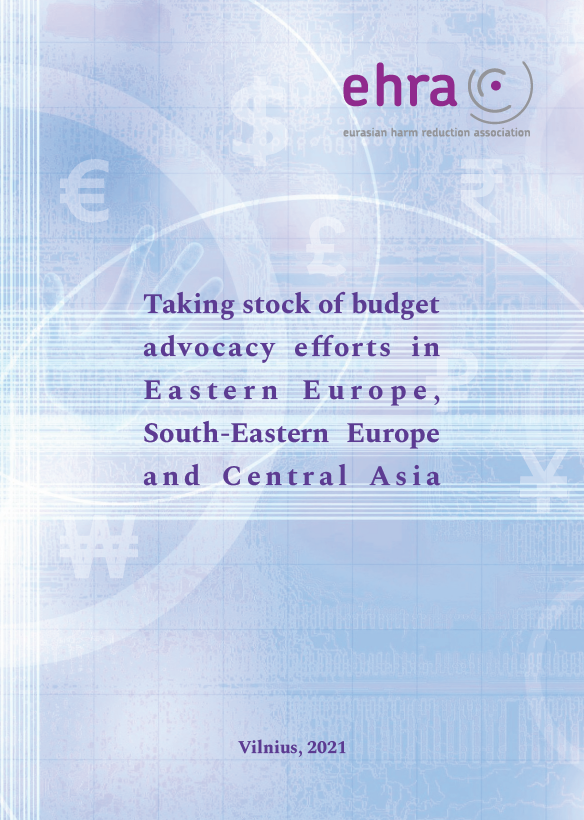We are happy to present the mapping report „Taking stock of budget advocacy efforts in Eastern Europe, South-Eastern Europe and Central Asiа“ summarising budget advocacy efforts, funding and impact during the period 2018-2021 in CEECA countries. The focus of the assessment is on the role of civil society in budget advocacy, while acknowledging that government leaders, UN and technical partners play important roles as well. The assessment describes key budget advocacy initiatives and HIV donor support for them. The report zooms in the four result areas of advocacy: civil society capacity to advocate; influencing HIV funding levels from national and local public sources; increasing efficiencies in spending; and contracting and funding for NGOs to deliver services. Without offering a comprehensive review, one of the final sections of the report shines light on efforts to influence budgets beyond HIV including in the fields of TB and health systems.
Regional overview is based on eight country case studies exploring national experiences with budget advocacy, emerging challenges, and best practices. Kyrgyzstan, Moldova and Ukraine (lower middle-income countries), Georgia, Kazakhstan and Montenegro (upper middle income countries receiving donor support), and Bulgaria and North Macedonia (post-Global Fund countries) were selected for analysis.
To keep the mapping manageable and focused, this assessment has not attempted to assess neither the impact of the ongoing COVID-19 pandemic on HIV budget advocacy and fiscal space for health financing nor potential savings from reducing criminalization of population behaviours.
Analytical report «Taking stock of budget advocacy efforts in Eastern Europe, South-Eastern Europe and Central Asiа» has been prepared by EHRA in partnership with Open Society Foundations, The Global Fund to Fight AIDS, Tuberculosis and Malaria Sustainability, Transition and Efficiency Strategic Initiative and EECA regional team in cooperation with ECOM – Eurasian Coalition on Health, Rights, Gender and Sexual Diversity and Eurasian Women’s Network on AIDS (EWNA) as partners in the Eurasian Regional Consortium withing project “Thinking outside the box: overcoming challenges in community advocacy for sustainable and high-quality HIV services” supported by the Robert Carr Fund for civil society networks. Information was provided by country, regional and international partners. We are grateful to all our partners, members of Regional Advisory Group on Sustainability, interviewees and reviewers for their time and effort in work on this report.
Country cases
Bulgaria
Georgia
Kazakhstan
Kyrgyzstan
Moldova
Montenegro
North Macedonia
Ukraine
To download this text as .pdf please click here

